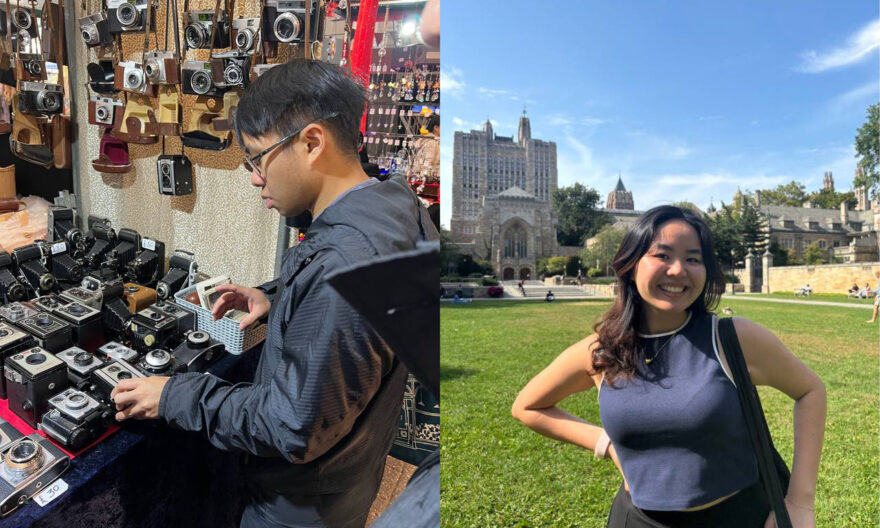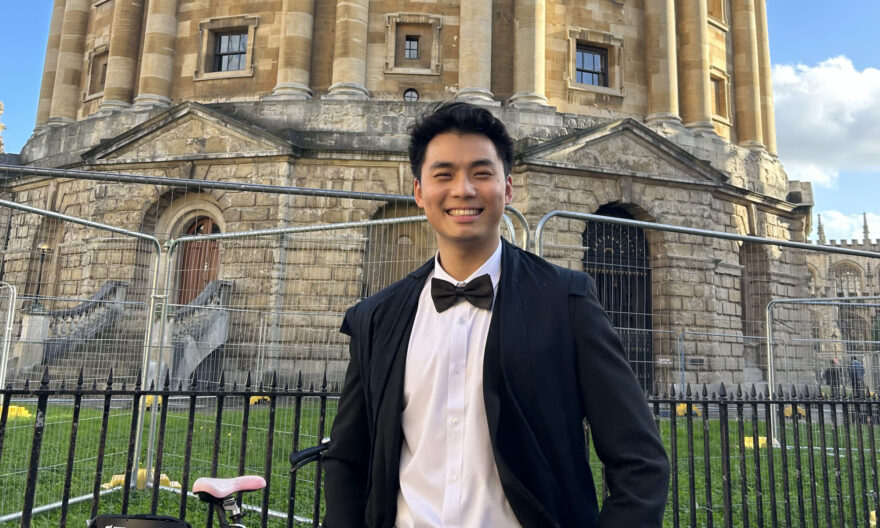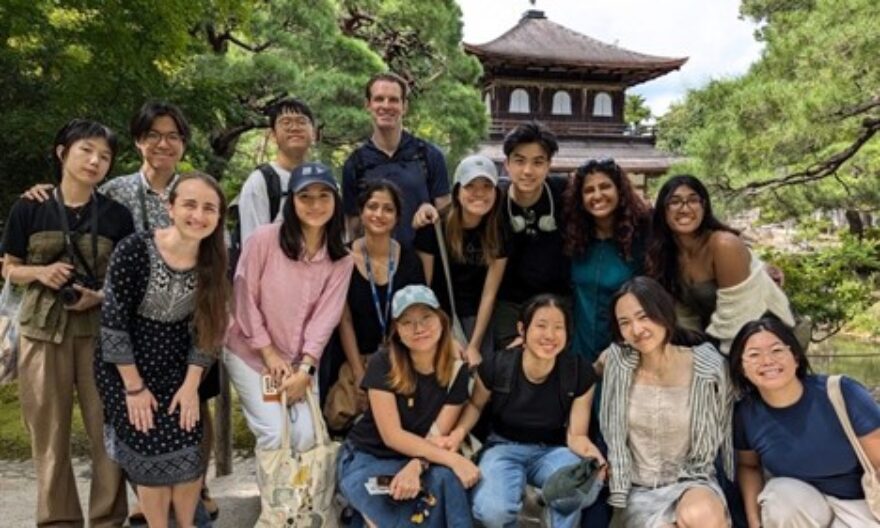Connecting with Singapore through Week 7: Learning Across Boundaries
From 22 February to 5 March, first-year students at Yale-NUS College embarked on an experiential learning journey as part of the College’s flagship Week 7 Learning Across Boundaries (LAB) programme.
“For the first time, all Week 7 projects were held in Singapore, giving students a unique opportunity to explore the diverse offerings of the city-state, and also reminding us of how much we can do and learn right here at home,” said Ms Beth Uding, Associate Director of Experiential Learning at the Centre for International & Professional Experience (CIPE).
Despite the new challenges brought on by the coronavirus pandemic as groups had to adapt their activities to adhere to health and safety requirements, this year’s Week 7 LAB projects retained the interdisciplinary and experiential nature of past years, challenging students to explore the ideas learned in the Common Curriculum outside a traditional classroom setting.
One such project was ‘Baking Beyond Boundaries: The Culinary Art and Science Behind Everyday Bread’. Led by Assistant Professor of Science (Chemistry) Zhuang Bilin and Ms Chiang Minyi, Senior Associate Director at the Dean of Faculty Office, the project incorporated the physical and chemical processes involved in bread-making with the historical context of baking, giving students the opportunity to previously learnt scientific and socio-historical in the applied art of break-making.
For Siddharth Chintalacheruvu (Class of 2024), this project was an opportunity to try out something new, while learning about the scientific mechanisms behind bread-making.
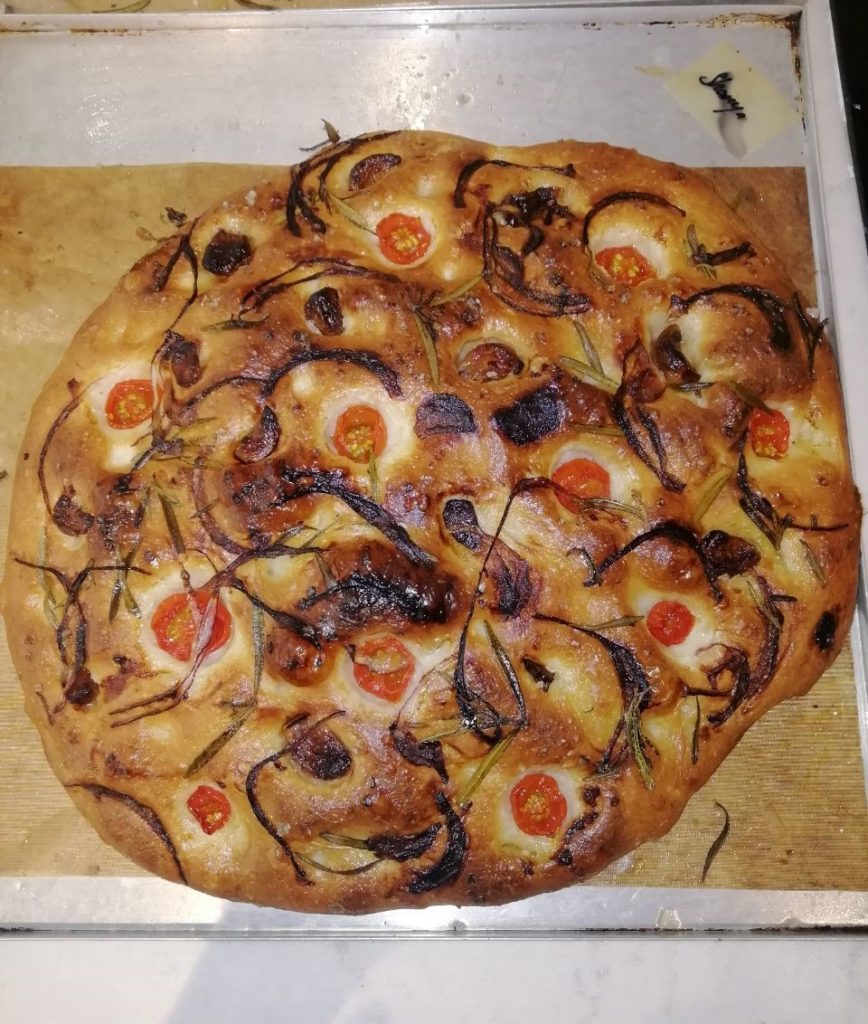 Bread made during the project ‘Baking Beyond Boundaries’. Students learnt the historical, cultural, artistic and scientific context behind the bread recipe. Photo provided by Shanya Sadanandan.
Bread made during the project ‘Baking Beyond Boundaries’. Students learnt the historical, cultural, artistic and scientific context behind the bread recipe. Photo provided by Shanya Sadanandan.
“Having picked up some basic recipes over the Circuit Breaker period, an entire week to learn about baking bread professionally sounded unreal,” he said. “Moreover, understanding the chemistry of baking demystified the process for a beginner like me. By learning about blooming yeast and the relationship between sugar and yeast, I learnt that most recipes online are made for temperate climates and do not work in Singapore! In Singapore, because of the humidity, proofing times can be almost halved.”
This year’s Week 7 LABs also took a special focus on Singapore and its rich history and culture. Inspired by the unique qualities of Singaporean English, often dubbed ‘Singlish’, one of these projects was aptly named ‘Singapore – ‘Why You So Like Dat’?’ Led by Professor of Humanities (History) and President of Yale-NUS College Tan Tai Yong, this LAB was an opportunity for students to both literally and figuratively walk through the development of Singapore from a colony to a modern city-state.
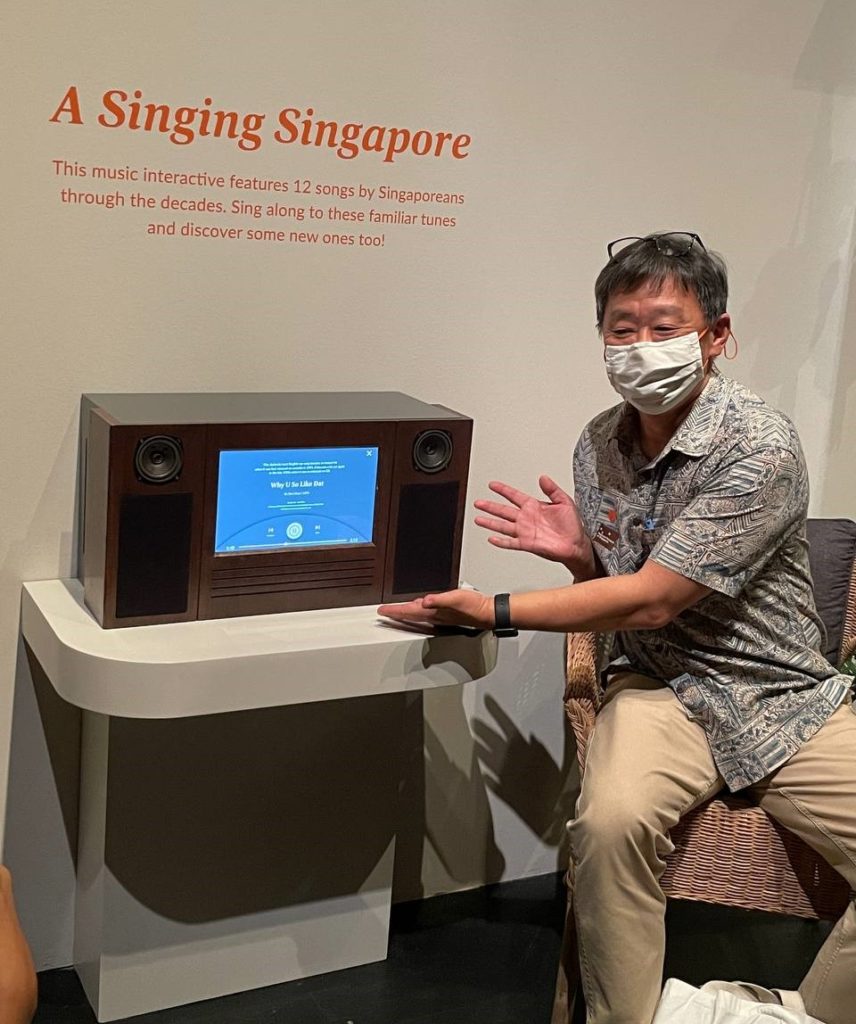 Professor Tan Tai Yong brought students on a learning visit to the National Museum of Singapore’s ‘Home, Truly’ exhibition for his project ‘Singapore – Why you so like dat’. Image provided by Dinesh Sukumar.
Professor Tan Tai Yong brought students on a learning visit to the National Museum of Singapore’s ‘Home, Truly’ exhibition for his project ‘Singapore – Why you so like dat’. Image provided by Dinesh Sukumar.
“I really enjoyed our tours of both Geylang and the St John’s Island Marine Aquaculture Centre. Both revealed a side of Singapore which we would never happen upon accidentally, and allowed me to learn about what Singapore offers beyond an orderly city lifestyle,” said Mitchell Palmer (Class of 2024), who participated in this project.
In particular, this project focused on the different angles from which to approach Singapore’s evolution into a global powerhouse. Beyond this, students also explored what makes Singapore’s governance successful, the trade-offs it faced in achieving this, and any challenges that could arise in the future.
Of the various social and political issues explored in the Common Curriculum, Mitchell said, “My Week 7 LAB experience allowed me to ground those theoretical examples in the real-world context of contemporary Singapore. What were previously abstract ideas became actual public policies and social realities; we learnt about how those ideas impact the lives of everyday Singaporeans.”
For Tanisha Naqvi (Class of 2024), this project was a chance to gain a new perspective on her home country. “I wasn’t expecting this Week 7 LAB to challenge my views of Singapore and constantly invite us to question the narratives being presented, but it did!” she explained. “We interacted with a wide range of speakers in different sectors of society, and the picture I have of Singapore now is deeper and more nuanced than what I started with.”
Another project was ‘The Mindful City: A Flash Nonfiction Writing Workshop for a Healthy Environment’, led by Assistant Professor of Humanities (Writing, Literature) Heidi Stalla and Assistant Professor of Practice in Social Sciences (Urban Studies) Valentina Zuin. This project aimed to deepen students’ understanding of Singapore as a healthy city, and how the country’s natural elements contribute to the connection between the people and their city through the perspectives of urban studies and literary journalism. Following morning outings that explored these questions, students spent the afternoons in writing workshops and eventually produced a flash non-fiction piece about what it means to engage with the city in a mindful way during the pandemic.
“My Week 7 experience expanded my horizons in so many ways,” said Tinotenda Zimhunga (Class of 2024). “Be it in showing me that I can write a lot in 20 minutes of not lifting my pen off the page, or the importance of being more mindful in how I approach my experiences. As an international student, it was also a lovely way for me to discover some beautiful gems in Singapore and see how it is an eco-city in the making. Besides this, the programme helped me get out of my comfort zone academically as it delved a bit into urban studies, a discipline I have no prior experience in but absolutely enjoyed.”
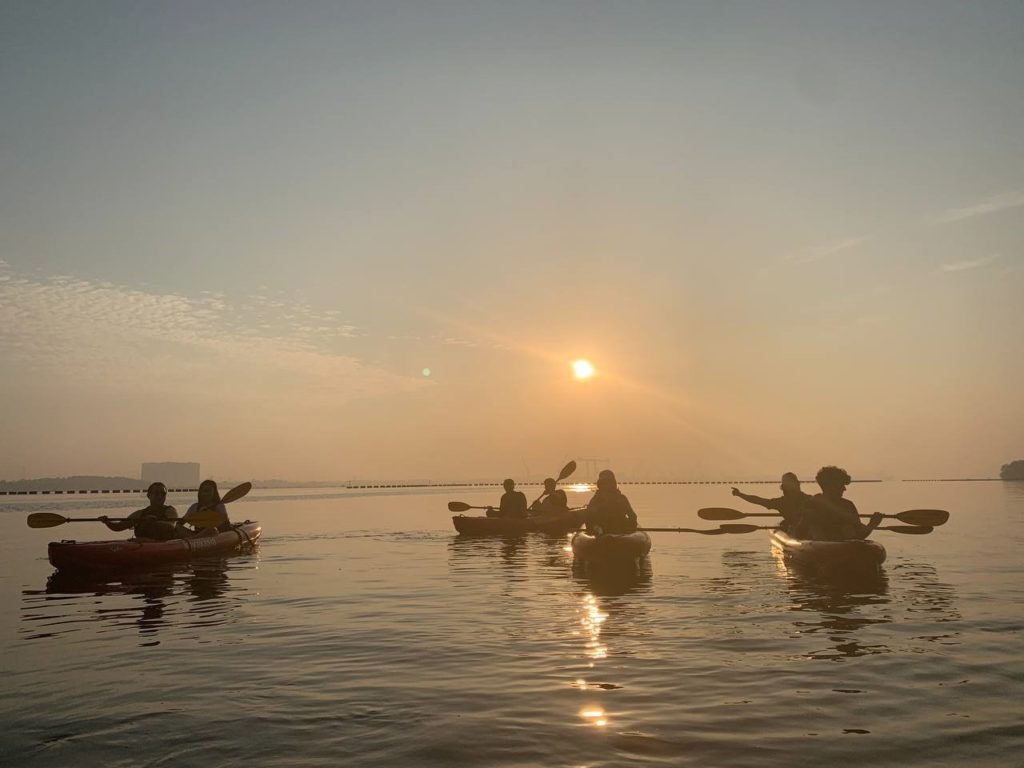 As part of ‘The Mindful City’ project, students went on a series of outdoor activities to experience the urban ecosystems of Singapore. Image provided by Aruzhan Shalabayeva.
As part of ‘The Mindful City’ project, students went on a series of outdoor activities to experience the urban ecosystems of Singapore. Image provided by Aruzhan Shalabayeva.
A deeper connection to Singapore was one of the main objectives in planning this year’s Week 7 LABs and for many students, the key takeaway from their experiences. “The talks and visits have, hopefully, deepened their understanding of how issues like climate change, governance, growth and inequality are viewed and tackled in Singapore,” said Professor Tan. “The students have heard various perspectives of the way Singapore functions, and I am sure all of them, locals and internationals, will have a better appreciation of the complex challenges Singapore faces as a country and city-state.”
In past years, Week 7 culminated in a symposium where students shared their knowledge and experience gained from their group projects. This year, the sharing was moved online with a virtual Closing Ceremony and a Week 7 blog site featuring the final projects from each group.
The Closing Ceremony ended on a thoughtful note on the importance of reflection––not only in the context of Week 7, but to create meaningful experiences as students move on to future endeavours. “Reflection can be done in many different ways—guided by programme leaders, journaling on one’s own, or engaging in discussions with peers and other community members,” said Ms Uding. “As shared at the Week 7 Closing Ceremony, we hope that students have found moments to pause, to imagine, to be curious, to linger, to exchange ideas, to pay attention, to remember and to make space for discovery.”

